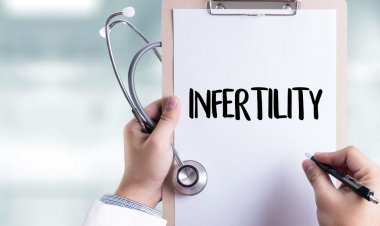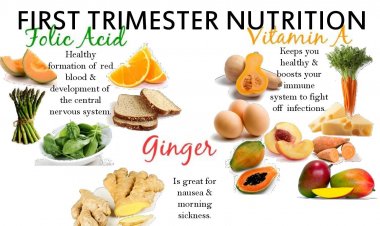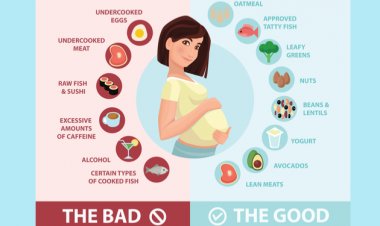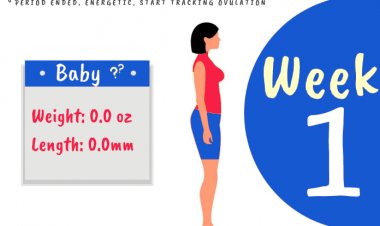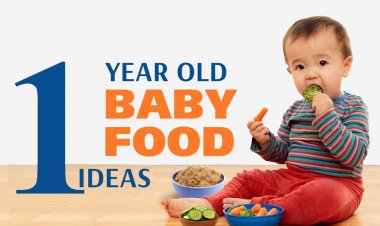Cracks and bleeding in the nipples during breast feeding?
Is it normal for nipples to crack or crack during breastfeeding? No, it's not normal. If cracked, cracked and bleeding nipples cause pain and discomfort, it probably means that your baby is not latching onto the breasts properly.
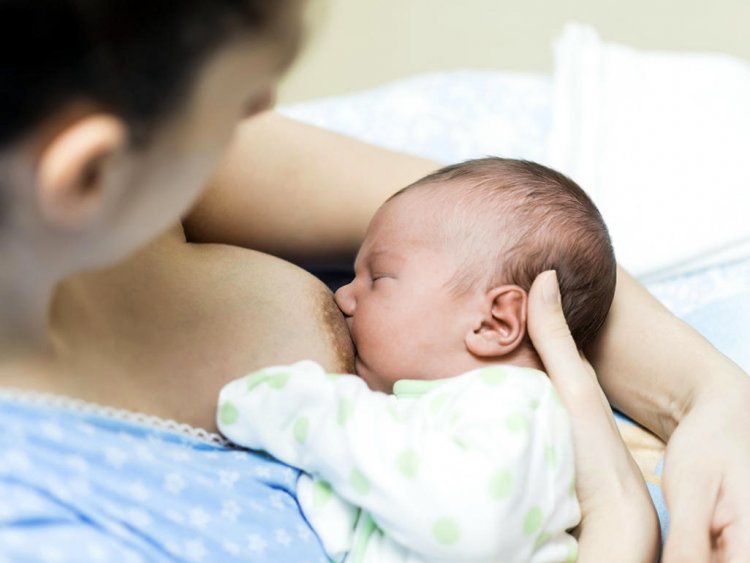
There should be no pain while breastfeeding, although you may initially feel sensitive nipples as you are learning to breastfeed. But you do not need to endure constant pain during breastfeeding.
Many times in the early days of breastfeeding, mothers who express their babies may find little blood in the breast milk, which turns the milk pink. If your nipple isn't sore or cracked, it's usually nothing to worry about.
This is due to increased blood flow to the breasts and increased milk-producing tissue instead of bleeding from your nipples. Talk to your doctor if the bleeding doesn't get better after the first week of starting breastfeeding.
Why do nipples crack or bleed during breastfeeding?
If your baby is not able to take a large portion of the breast into the mouth during breastfeeding, your nipple may come between the baby's tongue and the palate.
This will cause pain in your nipples and may soon crack and bleed.
This problem can be solved by helping the baby to take the nipple in the right way. Seek help from your doctor or a lactation consultant. You only need to make a small change in the way you breastfeed to avoid cracking or bleeding during breastfeeding.
What else can cause cracked or bleeding nipples?
Extremely dry skin or eczema can also cause cracking, soreness, and bleeding of the nipples. If you have a condition such as eczema on the nipples or breasts, it may be caused by:
- Cleaning the areola and nipple more than usual
- Use of creams, lotions, oils, soaps, or perfumes
- detergent stains
- Incorrect use of a breast pump or breast pump can also damage the nipples. Be careful when pumping milk out.
If you don't hug the baby properly, the baby may bite the nipple several times to create a grip. If your body temperature suddenly rises or falls or there is a sudden change in the weather. Therefore, due to dryness of the breast, there is a cut on the breast or they get cracked.
What can I do to treat cracked nipples? ,
Consult your doctor. They may ask you to refer you to a lactation specialist. The only treatment for cracked nipples is to improve how the baby moves the breasts to the mouth.
The information in our 'How to Breastfeed' article can help you with proper latching.
Pour some breast milk into your cracked nipples. Breast milk contains ingredients that help them heal and fight infection.
You can also apply a thin layer of soft white paraffin jelly to the nipples. Only a small amount of it can help reduce your pain and heal them quickly without pain.
You don't even need to wash this layer off every time you breastfeed. But its excessive use can cause problems in latching the baby properly, as it makes the breasts greasy. For this reason, the nipples move further down in the baby's mouth and are pressed against the palate, which can increase the pain.
Some moms-to-be use highly purified anhydrous (HPA) lanolin to treat their cracked nipples. However, there is no evidence for the use of lanolin to reduce pain or heal cracks more quickly. If you are prone to eczema, it is likely that lanolin may irritate your skin, which may increase the pain.
If you are having a post-delivery massage, do not apply any oil to the breasts and nipples. Also, it is better not to use massages or herbal remedies, or pastes suggested by Bai for cracked or bleeding nipples. These home remedies and products may contain ingredients that may not be appropriate for your condition or your breastfed baby.
Many people believe that applying honey to cracked nipples helps them heal faster and also reduces the pain during breastfeeding. However, no evidence is available to substantiate this belief. In fact, honey is not safe for babies under one year of age and can lead to a very serious but rare type of food poisoning called botulism.
It is better not to apply honey or any other herbal remedy in places where the child is in contact. This will prevent any side effects or allergies.
Do not wash nipples with soap or apply scented lotions to them. Washing or bathing with clean water is enough to keep the breasts and nipples clean.
If the pain is severe, analgesic medication may be taken, but talk to your doctor about which medication would be appropriate for you. If the cracks or sores do not heal despite all efforts, you should see a doctor.
Can I breastfeed my baby even if my nipple is severed?
Your baby will not be affected by your nipple being cut and cracked. He won't stop drinking if there is some blood, so long as you are able to tolerate the pain, you can continue to breastfeed. It is important that your baby is breastfed properly so that your nipples have a chance to heal. The use of nipple shields is found by some mothers to be useful when their nipples are healing.
If you use a nipple shield, ask a doctor or lactation consultant if latching is appropriate for your baby so you can start breastfeeding without a nipple shield as soon as possible.
Nipple shields encourage the baby to feed on the nipple instead of the breastmilk, which can make the problem worse. Therefore, it is only a temporary solution.
Not only will it benefit you but your baby as well if you place your baby in the right way during breast feeding. If you have cracked nipples due to improper feeding, it means that your baby is not getting enough milk. She may not be able to take in a substantial amount of past caloric milk at the end of breastfeeding. He needs this milk for his growth and weight gain. The baby is not able to drink milk properly, so it will take longer for her to breastfeed.
If you think it's impossible for you to breastfeed, simply wean your milk out of the compost and feed your baby in a cup or bottle.
Most often, nipple creaks heal without treatment in seven to 10 days. When you treat the underlying cause, you and your baby will soon be able to enjoy breastfeeding again.

 mybabycare
mybabycare 







